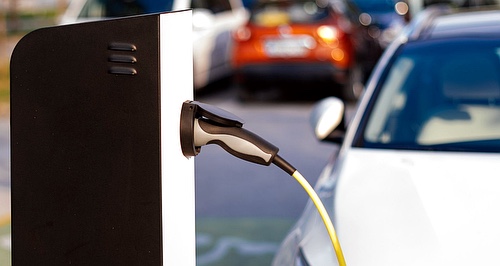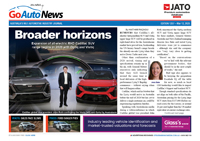Make / Model Search
News - General News - Electric VehiclesWA budgets $60m to bolster EV uptakeEV fillip: WA’s McGowan government will invest in EV infrastructure and offer rebates to EV buyers, but also levy a road-user charge on owners of zero-emission vehicles from 2027.
Better EV infrastructure and new rebates in WA but new road-user tax for 202716 May 2022 By MIKE FOURIE WESTERN Australia has become the latest state to offer rebates on the purchase of zero-emissions vehicles (ZEVs) as part of the McGowan government’s $60 million allocation in the 2022-23 state budget to accelerate uptake of cleaner transport in its jurisdiction.
Although broadly welcomed, the inclusion of a road-user charge for electric and plug-in hybrid vehicles has drawn similar criticism as schemes in other parts of Australia while some have questioned why it took WA’s Labor government so long to announce the policy.
The state’s Clean Energy Car Fund will include $36.5m to provide up to 10,000 rebates of $3500 each to Western Australians who buy a new battery-electric (BEV) or hydrogen fuel-cell vehicle (FCEV) valued at up to $70,000, which includes more popular models than Queensland’s $58,000 limit.
It is also investing $22.6m in new charging infrastructure to expand WA's electric vehicle charging network, with $10m set aside to support not-for-profits and small and medium-sized businesses with grants covering up to 50 per cent of charger installation costs, while $5m is earmarked to help local governments install charging infrastructure, again covering up to half the set-up cost.
Further, the Public Transport Authority will get $4m to trial the installation of charging infrastructure at four train stations (up to 20 bays per car park with commuter charging access) and more than $2.9m will be devoted to construct eight new charging stations across four locations on National Highway 1 between Norseman and Eucla “to ensure Western Australia's electric highway extends to SA”, said the WA government.
A further $31 million will be allocated for climate action research and planning to support initiatives that assist WA government agencies with reducing carbon emissions, while $200,000 will be invested to develop options on systems for monitoring and collecting a road-user charge.
This is because, in line with other states, WA will introduce a distance-based road-user charge for zero and low-emission light passenger vehicles.
However, the state will defer the implementation of this per-use levy, which it says “will ensure all motorists pay their fair share towards the maintenance and construction of WA roads”, to the beginning of July 2027.
A base rate of 2.5 cents per kilometre for electric and hydrogen vehicles and two cents per kilometre for plug-in hybrid electric vehicles will apply, with both rates indexed to the Consumer Price Index, meaning it will be higher than the stated rate when it comes into effect.
"We are implementing further initiatives to significantly reduce our carbon emissions and progress towards net zero emissions,” said WA state premier Mark McGowan.
"Our $3500 rebates are one of the most generous grants on offer in the nation (and) our $31 million commitment to climate action research and planning will see state government agencies take a leading role in reducing carbon emissions and support industry to reduce its carbon footprint.
"These significant investments will support climate resilient communities … and ensure WA can have a prosperous low-carbon future,” he added.
The McGowan government’s notable commitment to promote zero-emissions motoring in Western Australia was widely applauded, although some commentators criticised elements of the State’s EV strategy.
“The commitment of $22.6 million to expand charging infrastructure is a proactive step towards preparing for the future electrification of our road network,” said Federal Chamber of Automotive Industries chief executive, Tony Weber.
“The inclusion of 10,000 rebates of $3500 (is) going to help make owning an electric or hydrogen fuel-cell vehicle possible for more WA road users. It sends a positive signal for car manufacturers and motorists that electrification will be a key element in Australia’s transport future.
However, Mr Weber reiterated the FCAI’s position “that all taxes and charges related to motor vehicles should be replaced with one road user charge which can apply to any type of vehicle powertrain."
Similarly, the Electric Vehicle Council welcomed Western Australia’s new EV rebate scheme, but the organisation’s CEO – Behyad Jafari – suggested that WA (and other States) should reconsider how they were taxing drivers.
“In the immediate term the rebates are useful to make electric vehicles more affordable to people,” Brisbane Times quoted Mr Jafari as saying.
“In terms of road-user charges, moving our system over to them makes sense but there are smarter ways to do it,” he said, with reference to the NSW Government’s decision to implement them in 2027, “as an opportunity to remove stamp duty rather than add additional tax onto electric vehicles.”
Jafari said between now and 2027, the WA Government could get a pulse on the market and consider other initiatives (such as waiving stamp duty).
Greens MP Brad Pettitt, in turn, said Western Australia should have implemented its new policy sooner.
“There’s going to be good reason to be frustrated to leave it so long as getting a car will be difficult now,” he said to the Brisbane Times.
“Had that been in place two years ago when we were asking for it, it would have been easier to purchase one. Now there’s a long waiting time for all cars. That’s the frustration around this delay.
Meanwhile, Australian Electric Vehicle Association President Chris Jones told ABC News that it was unfair to "single out" EV owners, who had already forked out "a substantial chunk of tax" through GST and stamp duty.
"It's not like we haven't paid our taxes and if we genuinely want to charge people for the damage they cause to the roads, then we should be multiplying it by the mass of the vehicle as well,” Mr Jones said.
"Because the heavier the vehicle, the more damage it does to the road. And if we can factor that in, I think it will be fairer. The road-user charge is not a bad idea in of itself, but it could be implemented better," he added.
In a statement, the CEO of Vyro – an online portal dedicated to retailing new electric cars – Will Wise suggested that “the rebate threshold should be lifted to $90,000 as there are a lot of EVs out there that cost more than $70,000. Perhaps the rebate could be halved for cars above $70,000.”
“All that being said, a $3500 rebate for vehicles up to $70,000 is an encouraging start. The additional funding for EV charging stations will also mean it’s more convenient for more motorists to make the switch.  Read more |
Click to shareGeneral News articlesResearch General News Motor industry news |












Facebook Twitter Instagram